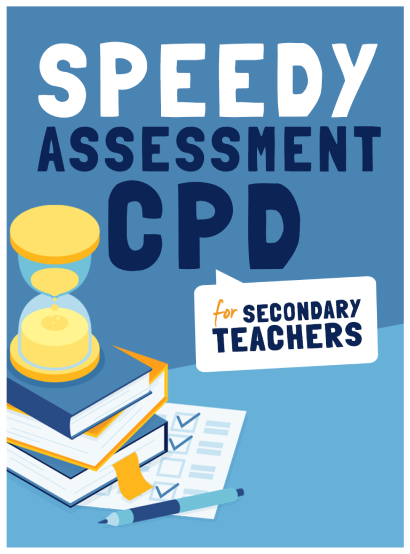New Specifications Make Starting GCSE Courses In Y9 More Tempting Than Ever – But Beware Of Teaching Too Much, Too Soon

Every secondary school teacher is grappling with supporting their students through the new GCSEs. As we venture into the unknown, one thing we can all recognise is that they are, without a doubt, much bigger and harder qualifications than before. So what do you do if you are a subject teacher of history, when your […]

- by Teachwire
- Classroom expertise and free resources for teachers

Every secondary school teacher is grappling with supporting their students through the new GCSEs. As we venture into the unknown, one thing we can all recognise is that they are, without a doubt, much bigger and harder qualifications than before.
So what do you do if you are a subject teacher of history, when your GCSE has moved from predominantly teaching 100 years of recent history, to near a thousand years of British history in a one fell swoop, like an arrow from a longbow?
Perhaps you are a science teacher, with your GCSE now including A level topics like scalars and vectors, or electromagnetic induction. Or you might be an English specialist, charged with teaching more of the trickier language of our nation’s canon of literature to ever younger learners.
Clearly, you have to start preparing students for these concepts and texts earlier than before, but how early is too early? In some cases, we are shifting A level to KS3! We, like our students, are faced with an intimidating challenge.
Could starting early make it harder?
The seeming answer: starting the GCSE course earlier, to allow time to cover the content effectively, appears common sense. The reality though, is that this is fraught with difficulty. Paradoxically, teaching harder texts and concepts earlier could hinder rather than help our students to learn. By concentrating on the increased content of the curriculum, we may lose sight of how we teach to scaffold for understanding.
When children are faced with sky-high difficulty, their instinctive response is to give up. Given the choice of wading through difficult reading for homework, or going on a ‘Tour of Duty’ on their computer console, the latter too often comes up trumps. We have a delicate balancing act to undertake. We need to support our students through struggle, maintaining their motivation along the way, without speedily spoon-feeding them content when the examination clock is ticking.
Academic vocabulary is crucial
‘When’ we teach needs to be matched with careful thought about ‘how’ we teach. For example, we need to consider, in every single subject, how we explicitly teach reading to learn, especially when the literacy demand of the qualification has been raised. Put simply, more history means more academic vocabulary to learn. This subject specific approach to reading strategies needs to start as early as possible, so that when students make the leap to GCSE, in year 9 or year 10, it is not a cavernous jump. This is increasingly vital if the GCSE begins earlier.
Solutions exist. We should be pre-teaching academic vocabulary. For every scheme of learning, from year 7, we should identify challenging academic vocabulary and help our students to explicitly unpick its meaning. When our students face difficult passages in their textbook, or literature in English, we should summarise the content first, reading it aloud and focusing on word knowledge gaps, before tackling the comprehension of the full passage.
Failure by assessment
The greatest danger of starting the GCSE earlier is putting learners through GCSE assessments before they are ready. The ‘how’ of assessment matters; already, it is clear that many students are facing full GCSE mock examinations in year 9. The issue here is that it drives teachers to teach full topics quickly, to meet the demand of sitting the exam, rather than ensuring time is taken to actually secure understanding. We need to do a better job of replacing unwieldy mocks (that offer us messy feedback on performance anyway) with more flexible and targeted diagnostic assessment, like cumulative quizzing.
A sobering truth is that our attempt to make things easier may in fact prove to be too much, too soon for our students, if we do not teach differently.
For more information on Alex Quigley visit theconfidentteacher.com or follow @HuntingEnglish.







